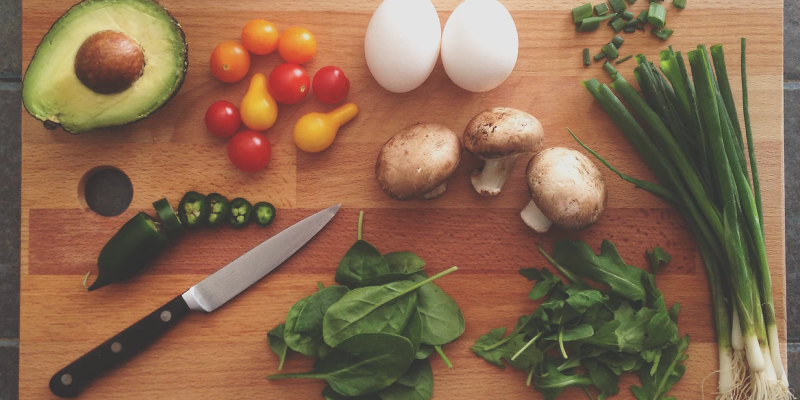Preventing Food Waste

Student Sustainability Architect, Ariane Far, interviews Tessa Mason, Student Nurse, and the winner of our Instagram competition to find the best ideas for helping the University and students to prevent food waste.
As McCowan (2020), underlined, academic institutions are one of the key players in the fight against climate change. Indeed, they possess research capabilities, are able to adapt their risk assessment models rapidly and last, but not least, are in direct communication with the leaders of tomorrow. Therefore, it is crucial to spread impactful messages, as well as educate the student body in order to inspire them to make a change in their personal life and future career.
There exists a plethora of causes to choose from, however, one of the two Business School Student Architects chose one which could easily strike a chord: food waste. Indeed, reducing this issue could amount to £5.25 saved per week for students (McCowan, 2019).
With this idea in mind, the University participated in the Food Waste Action Week, from 1 – 7 March 2021, in collaboration with The Waste and Resources Action Programme (WRAP), a circularity-focused not-for-profit company. Through several posts and an educational webinar, we hoped to raise awareness around the issue. To conclude the week, an idea competition ran on the University of Leeds Sustainability Instagram. Below you will find our winner Tessa Mason, a student Nurse at the University of Leeds, discussing her ideas with Ariane Far, the Student Sustainability Architect in charge of this project.
Ariane:
Hi Tessa, thank you for your participation and congratulations on the win. My first question would be: what used to be your biggest food waste struggle as a student, and how did you get over it?
Tessa:
My biggest food waste struggle was having veggie scraps such as peelings or vegetables that had begun to go off. There were no facilities to compost at university accommodation and initially I did not know that there are simple alternatives to veggie scraps going to landfill. I discovered an app called Sharewaste which connects people who want to compost their kitchen scraps with those who want to receive veggie scraps for their own compost heaps.
Where do you like finding more information on the topic?
Facebook groups such as Leeds Zero Waste Living is a place you can learn about food-waste schemes specific to Leeds. It’s where I heard about Sharewaste.
What kind of apps or tools would you recommend to students?
I’d highly recommend the app Olio where people give away food & other household items to their neighbours, all for free. I’ve gotten so much food from that app, all of which would have gone to the bin. I also recommend students to head to The Rainbow Junk-tion Café. It is based in Hyde Park and turns ‘waste’ food into nutritious meals.
Such useful recommendations, thank you! I would also add To Good To Go to that list. They were founded by two University of Leeds Alumni who have done some amazing work in collaboration with Great Food at Leeds. For instance, they set up pick up points at the Business School’s Café to reduce waste. On that note, what could be for you the next step for the University of Leeds’ catering system?
High consumption of meat is a leading contributor to greenhouse gas emissions, so I believe the reasonable and essential solution is to remove meat from campus menus. The University of Cambridge have already taken this step and speak of the “dramatic benefits” in their report called Our Sustainable Food Journey.
Are there any further investments you would like the University to consider in order to reduce waste?
The University could invest in a dehydrator which can convert food scraps into soil within 24 hours. The Princess Alexandra Hospital in Brisbane use a dehydrator and converts 500 kilograms of food waste each day into 50 kilograms of fertilizer. The hospital say they use the fertilizer on their ground and save money from what they used to pay for waste removal. At first, a dehydrator could be used within the university canteens and campus cafes then could be expanded to incorporate university accommodation.
Thank you again Tessa for sharing your thoughts and your collaboration on this article, all the best in your studies.
Want to know more about food waste? Have any ideas you would like to share with us? We have opened three more slots for our food waste webinar in which you can explore how to buy, cook and store food more sustainably and responsibly for free. All you have to do is sign up online for one of the following dates:
April, 14th at 4pm: sign up here
April, 30th at 12.30pm: sign up here
Keep up to date on the latest news
-
- Follow us on Twitter: @UoL_Sus
- Follow us on Instagram: @uol_sus
- Follow us on Facebook: @UoLSustainability
- Sign up to our Sustainability newsletter
United Nations Sustainable Development Goals
We use the United Nations Sustainable Development Goals (SDGs) as a framework to guide our activity. Caitlin's work on biodiversity action planning is linked to the following SDGs:
- Goal 3: Good Health and Wellbeing
- Goal 11: Sustainable Cities and Communities
- Goal 13: Climate Action
Find out more about our impact on the SDGs.
